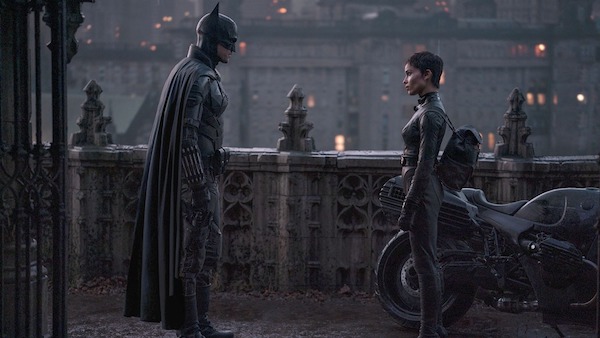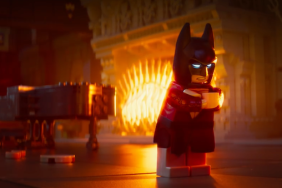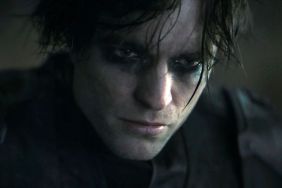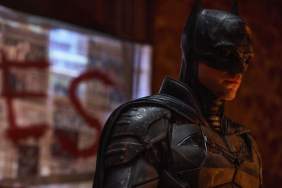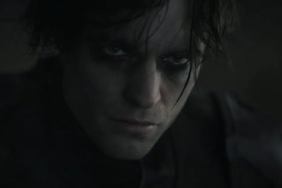By this point, Batman has had a major presence in popular culture for the better part of 8 decades. Although the character has many interpretations in many different mediums throughout the years, the caped crusader’s film adaptations have undoubtedly been the most influential in terms of broader cultural appeal. The interesting thing about Batman is the adaptability of the character (especially on film). This flexibility means that just about every live-action interpretation of the Dark Knight is an equally valid one. Not to mention the plethora of great animated Batman movies, from Mask of the Phantasm to Lego Batman and beyond, but that is another can of worms entirely. Now that The Batman is finally out in theaters, we’re forced to do an obligatory ranking of all the live-action Batman movies. Here. We. Go.
Cover Photo: Warner Bros.
Ranked! Every Live-Action Batman Movie (Including The Batman)
-
11. Batman & Robin
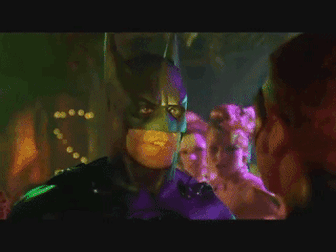
About 5 minutes into watching Batman & Robin, it becomes clear that the movie jumps the shark and never returns from pure absurdity. In fact, the primary goal of the studio at the time was not to tell a good story, but to make the movie more “toyetic”. Batman & Robin is undoubtedly a bad movie, and yet there is some fun to be had if you embrace the cheeky one-liners and the iconically terrible puns from Arnold Schwartzenegger. In other words, it's a more enjoyable experience if you laugh at the movie, rather than laughing with it.
-
10. Batman v Superman: Dawn of Justice
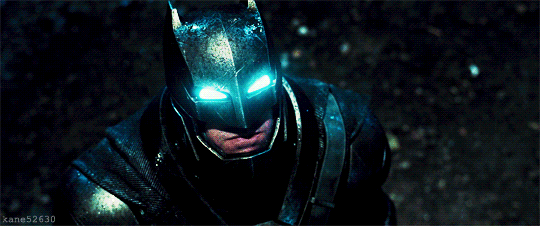
As a Batman film, Batman v Superman: Dawn of Justice does the dark knight dirty. And as much as Ben Affleck’s casting was inspired, Zack Snyder’s interpretation of the character feels the furthest removed from his comic book counterpart. While the film pulls heavily from The Dark Knight Returns in terms of the visual iconography, it also squanders much of this value with poor writing and an even more ridiculous reason for it to exist. Even though the director’s cut of Dawn of Justice offers a slight improvement over the theatrical version, this film just fundamentally misunderstands Batman in a way that feels irredeemable.
-
9. Justice League/ZSJL
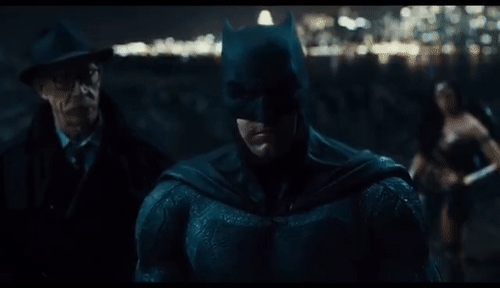
It’s true that Zack Snyder’s Justice League is an improvement over the atrocity that is the theatrical version. The movie still grapples with the same core problems, so Justice League is still not perfect by any means no matter which version you watch. Unlike its predecessor, at least this version of Batman is at least a little bit closer to the character that we know. If anything, it confirms that even though Ben Affleck was well cast as the Dark Knight, his talents were completely wasted with subpar material, especially in terms of the Batman elements.
-
8. Batman: The Movie (1966)
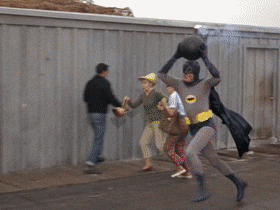
Say what you want about 1966’s Batman: The Movie, but at least it’s a truthful interpretation of the character (for its time). Considering that Batman was not even three decades old around the time of the film’s release, the first theatrical version of the Caped Crusader is essentially three episodes of the tv show strung together into a 90-minute runtime. Even though most people scoff at the campy, self-aware tone of Batman ‘66, the movie is more clever than those same people give it credit for. Adam West’s physical comedy in the movie will forever remain legendary. However, the fact that it is too much of a product of its generation is the reason why it’s hard to rank it higher.
-
7. Batman Forever
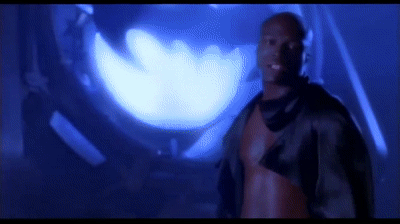
Batman Forever often gets lumped in with Batman & Robin simply because it was directed by Joel Schumacher. In fact, Batman Forever is much better than people give it credit for. While the movie is not without its problems, Schumacher was clearly inspired by Batman comic runs of the 1940s and early 1950s. For those who are unaware, this is the era where the Caped Crusader was jumping from the keys of a giant typewriter or fighting a jumbo pencil sharpener. In this context, Batman Forever starts to make a lot more sense. It’s also notable for being the first time (at least on film) that attempted to analyze the psychology of a character like Batman. These are only a few of the many reasons why most people get Batman Forever wrong. Side Note: Seal’s Kissed By A Rose is and shall remain an all-time banger.
-
6. The Dark Knight Rises

The Dark Knight Rises may be the weakest of the Nolan trilogy, and yet it can’t help but be a decent threequel. Although the movie does a lot of things right (especially for a trilogy-capper), the internet often correlates the film as a mediocre mess. The movie is certainly hampered by the expectations for the previous two films, and it is undoubtedly flawed in certain respects. It had a feverish level of hype surrounding the film that could have never been matched. And yet, from a pure technical craft perspective, The Dark Knight Rises is immaculate. Say what you will about the film, there’s no doubt that at the very least, it’s one of the better trilogy-enders out there.
-
5. Batman (1989)
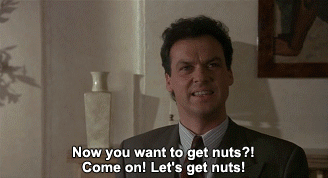
1989’s Batman is more important for its cultural impact than it is for being an amazing movie. As the first big-budget theatrical Batman adaptation, the movie does a good job of establishing the foundation for the next 15 years of the franchise. Nicholson and Keaton have amazing chemistry together, Anton Furst’s Production Design is legendary, and Elfman’s score is iconic. Batman is undoubtedly broad, but the way Burton’s film uses this to appeal to audiences both young and old is part of its charm. All things considered, Batman manages to hold up remarkably well, even if it is more focused on the tone and atmosphere than it is in telling a good Batman story.
-
4. Batman Returns
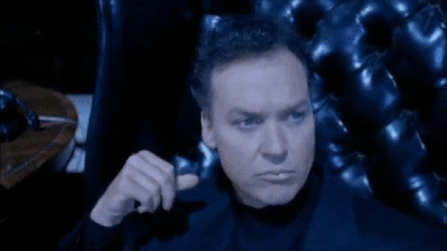
Much like the movie that followed it, Batman Returns is often misunderstood. Whereas Tim Burton’s first film was a Batman movie that happened to be directed by Tim Burton, the follow-up was a Tim Burton movie that happened to feature Batman. It’s true that Batman Returns is much darker than the original, which means that it naturally won’t be everyone’s cup of tea. At the same time, it’s also the weirdest movie in the franchise to date by far. The eclectic nature of Batman Returns is not a bug, but rather a feature. Much like the movies on the rest of this list moving forward, it has a clear vision that doesn’t seem to be affected by studio meddling.
-
3. Batman Begins
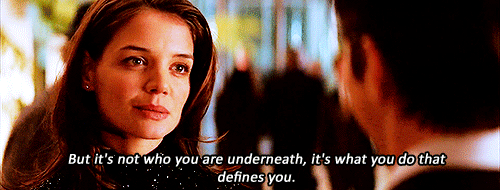
In many ways, Batman Begins is not only a milestone of superhero movies but cinematic storytelling in general. While The Dark Knight is often credited with forever changing the superhero genre (and rightfully so), none of that would have been possible without Batman Begins. Aside from being the first film to successfully unlock the psychology of Bruce Wayne/Batman, it also started the trend of absolute realism in the genre (for better or worse). Unlike its successors, the best part of Christopher Nolan’s first foray into the superhero genre is that it's purely a Batman story, meaning that Batman Begins is ultimately the height of pure form and function in the franchise thus far.
-
2. The Batman
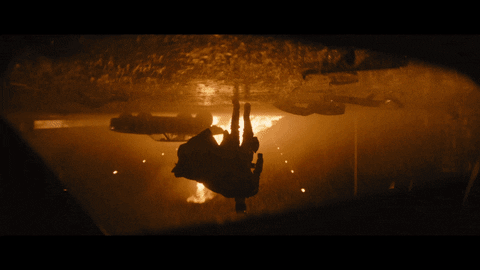
One of the biggest challenges of The Batman was to do something that hadn’t been done before. In this respect, Matt Reeves’ film succeeds with flying colors. While the movie was marketed as another action-packed adventure, it’s more emblematic of an arthouse picture that happened to be produced with a $200 million budget. In a nutshell, the movie basically answers the question of what a David Fincher-directed superhero movie would look like. In all seriousness, The Batman is an exquisitely-crafted film. There’s so much that the movie does right that it’s hard to complain about the minor flaws it may have.
-
1. The Dark Knight
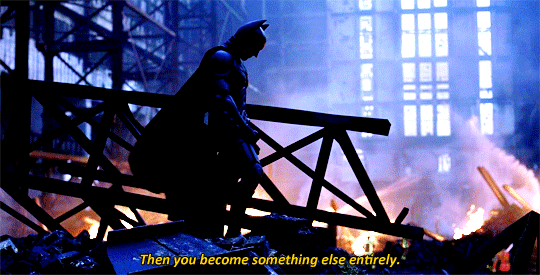
The Dark Knight is undoubtedly a quintessential superhero film. This shouldn’t come as a surprise to anyone who has been paying attention, but what makes The Dark Knight such an enduring masterpiece is that it is one of only a handful of superhero movies to successfully transcend the genre. In other words, the film is more of a crime drama than a Batman movie. Despite the fact that Batman is essentially a supporting player in his own story, the movie uses this concept to transpose itself as a larger exploration of Gotham City itself, not to mention the broader themes that the movie explores.
